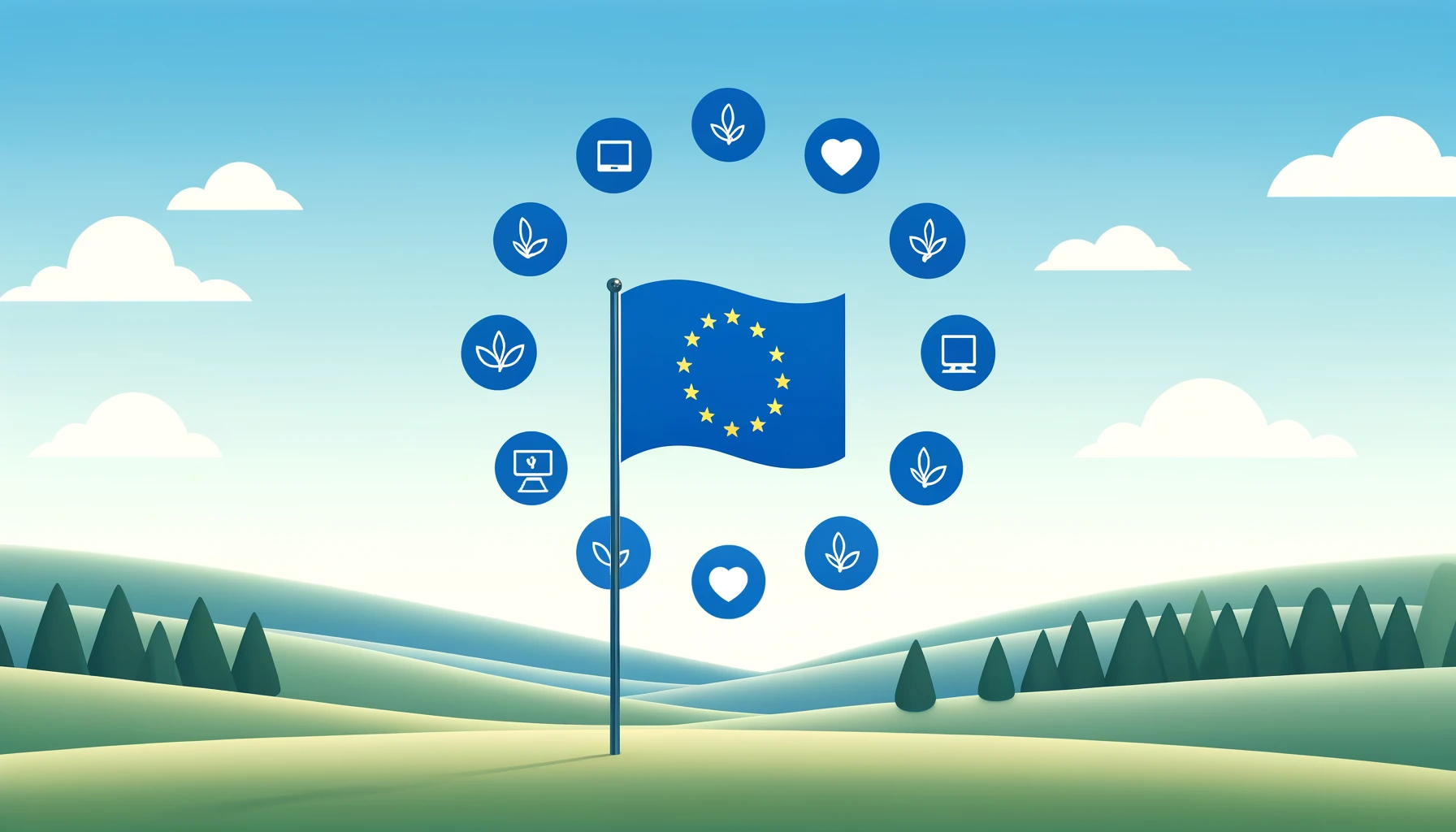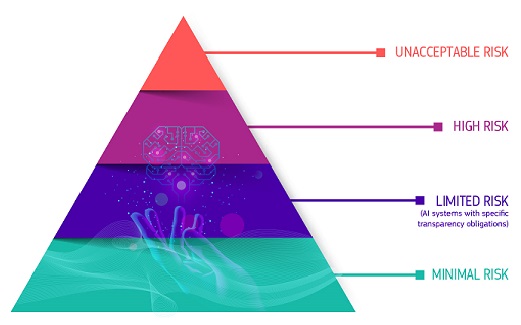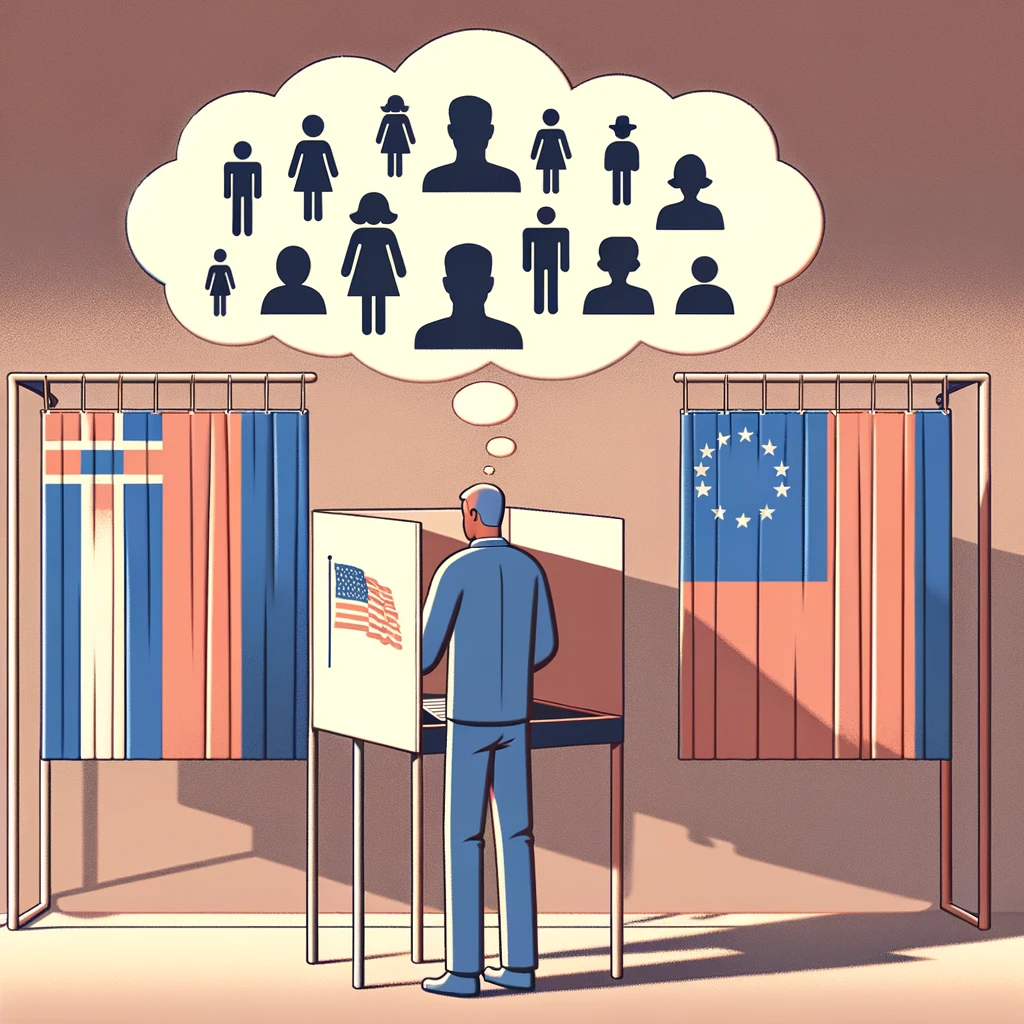In one way or another, Covid-19 has affected us all. Whether infected by the disease or not, the economic insecurity, layoffs, border closures, lockdown orders, and general sense of unease have swept the globe in a matter of weeks. Now more than ever, people desire strong, stable leadership. And now more than ever, the EU is being criticized for its lack of action. However, this criticism is irrelevant if it is not based on facts. So, the team at EAVI has put together this article to better explain the sentiments, the limitations, and the truth behind the EU’s role during the Covid-19 pandemic. This article will be followed by a second one next week to explore the topic further.
First, it is necessary to comprehend why citizens have been so quick to criticize the EU. It is tempting to blame the media or foreign influences for anti-EU sentiment, but while these actors may have had a role in intensifying or spreading it, they certainly did not create it. Even before the impacts of Covid-19, 62% of Europeans felt that the EU did not understand the needs of its citizens, and 58% of Europeans said they believe that their children will be in a worse financial position than they are. The overall distrust of the EU and malaise concerning the future has been exacerbated by the perceived mishandling of the Covid-19 crisis. Italy, the first European country to severely suffer due to Covid-19, is expressing their anger towards the EU with a wave of #italexit tweets, mimicking the United Kingdom’s decision to leave the EU. Italians have felt left behind, and only 4% believe that the EU is doing enough to help them. In November 2018, 47% of Italians see European citizenship as a disadvantage, compared to 67% now. Northern European countries are refusing to engage in joint bonds to mitigate the economic cost of recovery, and had initially refused medical aid. Many predict Covid-19 will be the final straw for the EU, as citizens’ long-held skepticism has been solidified by a lack of member state solidarity and seeming absence of the EU.
However, resentment and criticism is only constructive if it is warranted. While the EU has sizable power to influence trade and competition, health is primarily the responsibility of member states’ national governments. This means that the EU is not able to interfere in matters of public health, it can only support, coordinate, or complement member countries’ actions. The EU is unable to act outside of the authority that all member countries give it, and will always defer to national governments if they are able to intervene more effectively. Thus, the EU can help coordinate efforts between countries, but it cannot force certain countries to act or provide assistance if they choose not to. It also cannot provide doctors in EU jackets, as this is not the way the EU is structured. Because the power of national governments surpasses that of the EU concerning Covid-19, measures such as social isolation and school closures are up to national governments. This is for the better, since such actions are more efficient and more trustworthy if they come from the government closest to the citizens. Whether the EU used all of the tools provided to it through treaties and agreements is up for debate, but within that debate, it is crucial to acknowledge that some of the expectations citizens have placed on the EU are actually not within its power.
Despite some inaction and limitations, the facts are that the EU has indeed acted during the Covid-19 crisis. Some examples include Norwegian and Romanian doctors and nurses being sent to Italy by the EU Medical Corps, allowing member states to access the RescEU supply of medical equipment (which includes much-needed ventilators and protective masks), providing 37 billion euros for cohesion money to strengthen healthcare systems under the Coronavirus Response Investment Initiative, repatriating the EU citizens stuck abroad due to travel restrictions, unlocking 1 billion euros for the European Investment Fund, supporting vaccine research, and fighting disinformation. At the moment, it is working to secure 100 billion euros to help Europeans who have lost their jobs. More EU actions can be found on the EU website, https://ec.europa.eu/info/live-work-travel-eu/health/coronavirus-response_en. The EU Parliament has also called for a more unified response, both acknowledging the perception that it is not doing enough, and calling to do more in the future. All things considered, the EU’s response to Covid-19 demonstrates much improvement over its response to the H1N1 pandemic in 2009.
While all can agree that the EU has not acted perfectly in every decision, there is no perfect guidebook to follow. Covid-19 is an unprecedented situation for the entire world, and every government organization is doing its best with available information. The United States, which, unlike the EU, is a sovereign country, is also facing criticism that the federal government is not doing enough to help individual states. While resentment for the EU may or may not be accurately held, it is crucial to realize that the entire world is struggling, no matter what the structure of the government. Therefore, even more attention must be paid to the facts – what the EU has the power to do, what the EU has already done, and to some extent, even what other countries are doing. The more information one knows, the more accurate one is able to engage, criticize, and help to remedy the situation.
In one way or another, Covid-19 has affected us all. Whether infected by the disease or not, the economic insecurity, layoffs, border closures, lockdown orders, and general sense of unease have swept the globe in a matter of weeks. Now more than ever, people desire strong, stable leadership. And now more than ever, the EU is being criticized for its lack of action. However, this criticism is irrelevant if it is not based on facts. So, the team at EAVI has put together this article to better explain the sentiments, the limitations, and the truth behind the EU’s role during the Covid-19 pandemic. This article will be followed by a second one next week to explore the topic further.
First, it is necessary to comprehend why citizens have been so quick to criticize the EU. It is tempting to blame the media or foreign influences for anti-EU sentiment, but while these actors may have had a role in intensifying or spreading it, they certainly did not create it. Even before the impacts of Covid-19, 62% of Europeans felt that the EU did not understand the needs of its citizens, and 58% of Europeans said they believe that their children will be in a worse financial position than they are. The overall distrust of the EU and malaise concerning the future has been exacerbated by the perceived mishandling of the Covid-19 crisis. Italy, the first European country to severely suffer due to Covid-19, is expressing their anger towards the EU with a wave of #italexit tweets, mimicking the United Kingdom’s decision to leave the EU. Italians have felt left behind, and only 4% believe that the EU is doing enough to help them. In November 2018, 47% of Italians see European citizenship as a disadvantage, compared to 67% now. Northern European countries are refusing to engage in joint bonds to mitigate the economic cost of recovery, and had initially refused medical aid. Many predict Covid-19 will be the final straw for the EU, as citizens’ long-held skepticism has been solidified by a lack of member state solidarity and seeming absence of the EU.
However, resentment and criticism is only constructive if it is warranted. While the EU has sizable power to influence trade and competition, health is primarily the responsibility of member states’ national governments. This means that the EU is not able to interfere in matters of public health, it can only support, coordinate, or complement member countries’ actions. The EU is unable to act outside of the authority that all member countries give it, and will always defer to national governments if they are able to intervene more effectively. Thus, the EU can help coordinate efforts between countries, but it cannot force certain countries to act or provide assistance if they choose not to. It also cannot provide doctors in EU jackets, as this is not the way the EU is structured. Because the power of national governments surpasses that of the EU concerning Covid-19, measures such as social isolation and school closures are up to national governments. This is for the better, since such actions are more efficient and more trustworthy if they come from the government closest to the citizens. Whether the EU used all of the tools provided to it through treaties and agreements is up for debate, but within that debate, it is crucial to acknowledge that some of the expectations citizens have placed on the EU are actually not within its power.
Despite some inaction and limitations, the facts are that the EU has indeed acted during the Covid-19 crisis. Some examples include Norwegian and Romanian doctors and nurses being sent to Italy by the EU Medical Corps, allowing member states to access the RescEU supply of medical equipment (which includes much-needed ventilators and protective masks), providing 37 billion euros for cohesion money to strengthen healthcare systems under the Coronavirus Response Investment Initiative, repatriating the EU citizens stuck abroad due to travel restrictions, unlocking 1 billion euros for the European Investment Fund, supporting vaccine research, and fighting disinformation. At the moment, it is working to secure 100 billion euros to help Europeans who have lost their jobs. More EU actions can be found on the EU website, https://ec.europa.eu/info/live-work-travel-eu/health/coronavirus-response_en. The EU Parliament has also called for a more unified response, both acknowledging the perception that it is not doing enough, and calling to do more in the future. All things considered, the EU’s response to Covid-19 demonstrates much improvement over its response to the H1N1 pandemic in 2009.
While all can agree that the EU has not acted perfectly in every decision, there is no perfect guidebook to follow. Covid-19 is an unprecedented situation for the entire world, and every government organization is doing its best with available information. The United States, which, unlike the EU, is a sovereign country, is also facing criticism that the federal government is not doing enough to help individual states. While resentment for the EU may or may not be accurately held, it is crucial to realize that the entire world is struggling, no matter what the structure of the government. Therefore, even more attention must be paid to the facts – what the EU has the power to do, what the EU has already done, and to some extent, even what other countries are doing. The more information one knows, the more accurate one is able to engage, criticize, and help to remedy the situation.
In one way or another, Covid-19 has affected us all. Whether infected by the disease or not, the economic insecurity, layoffs, border closures, lockdown orders, and general sense of unease have swept the globe in a matter of weeks. Now more than ever, people desire strong, stable leadership. And now more than ever, the EU is being criticized for its lack of action. However, this criticism is irrelevant if it is not based on facts. So, the team at EAVI has put together this article to better explain the sentiments, the limitations, and the truth behind the EU’s role during the Covid-19 pandemic. This article will be followed by a second one next week to explore the topic further.
First, it is necessary to comprehend why citizens have been so quick to criticize the EU. It is tempting to blame the media or foreign influences for anti-EU sentiment, but while these actors may have had a role in intensifying or spreading it, they certainly did not create it. Even before the impacts of Covid-19, 62% of Europeans felt that the EU did not understand the needs of its citizens, and 58% of Europeans said they believe that their children will be in a worse financial position than they are. The overall distrust of the EU and malaise concerning the future has been exacerbated by the perceived mishandling of the Covid-19 crisis. Italy, the first European country to severely suffer due to Covid-19, is expressing their anger towards the EU with a wave of #italexit tweets, mimicking the United Kingdom’s decision to leave the EU. Italians have felt left behind, and only 4% believe that the EU is doing enough to help them. In November 2018, 47% of Italians see European citizenship as a disadvantage, compared to 67% now. Northern European countries are refusing to engage in joint bonds to mitigate the economic cost of recovery, and had initially refused medical aid. Many predict Covid-19 will be the final straw for the EU, as citizens’ long-held skepticism has been solidified by a lack of member state solidarity and seeming absence of the EU.
However, resentment and criticism is only constructive if it is warranted. While the EU has sizable power to influence trade and competition, health is primarily the responsibility of member states’ national governments. This means that the EU is not able to interfere in matters of public health, it can only support, coordinate, or complement member countries’ actions. The EU is unable to act outside of the authority that all member countries give it, and will always defer to national governments if they are able to intervene more effectively. Thus, the EU can help coordinate efforts between countries, but it cannot force certain countries to act or provide assistance if they choose not to. It also cannot provide doctors in EU jackets, as this is not the way the EU is structured. Because the power of national governments surpasses that of the EU concerning Covid-19, measures such as social isolation and school closures are up to national governments. This is for the better, since such actions are more efficient and more trustworthy if they come from the government closest to the citizens. Whether the EU used all of the tools provided to it through treaties and agreements is up for debate, but within that debate, it is crucial to acknowledge that some of the expectations citizens have placed on the EU are actually not within its power.
Despite some inaction and limitations, the facts are that the EU has indeed acted during the Covid-19 crisis. Some examples include Norwegian and Romanian doctors and nurses being sent to Italy by the EU Medical Corps, allowing member states to access the RescEU supply of medical equipment (which includes much-needed ventilators and protective masks), providing 37 billion euros for cohesion money to strengthen healthcare systems under the Coronavirus Response Investment Initiative, repatriating the EU citizens stuck abroad due to travel restrictions, unlocking 1 billion euros for the European Investment Fund, supporting vaccine research, and fighting disinformation. At the moment, it is working to secure 100 billion euros to help Europeans who have lost their jobs. More EU actions can be found on the EU website, https://ec.europa.eu/info/live-work-travel-eu/health/coronavirus-response_en. The EU Parliament has also called for a more unified response, both acknowledging the perception that it is not doing enough, and calling to do more in the future. All things considered, the EU’s response to Covid-19 demonstrates much improvement over its response to the H1N1 pandemic in 2009.
While all can agree that the EU has not acted perfectly in every decision, there is no perfect guidebook to follow. Covid-19 is an unprecedented situation for the entire world, and every government organization is doing its best with available information. The United States, which, unlike the EU, is a sovereign country, is also facing criticism that the federal government is not doing enough to help individual states. While resentment for the EU may or may not be accurately held, it is crucial to realize that the entire world is struggling, no matter what the structure of the government. Therefore, even more attention must be paid to the facts – what the EU has the power to do, what the EU has already done, and to some extent, even what other countries are doing. The more information one knows, the more accurate one is able to engage, criticize, and help to remedy the situation.






















































































































































